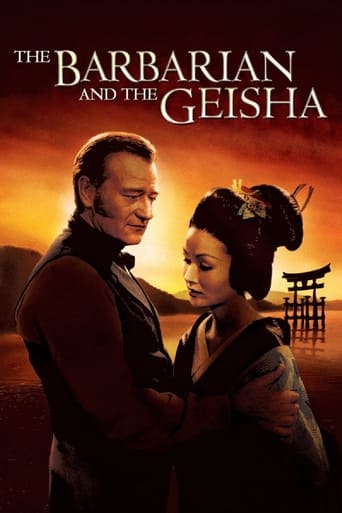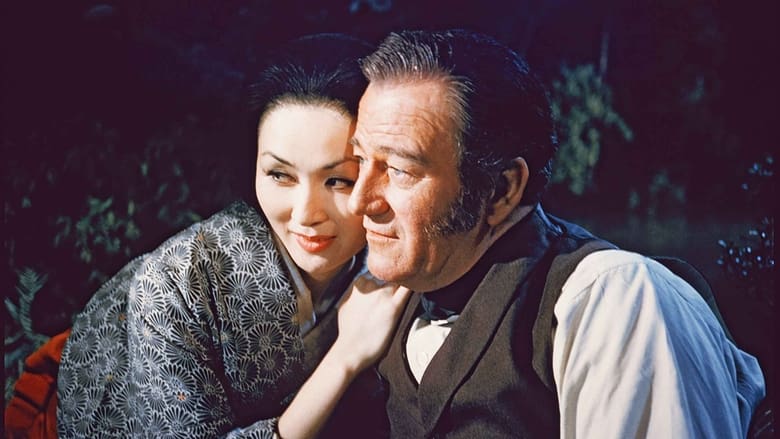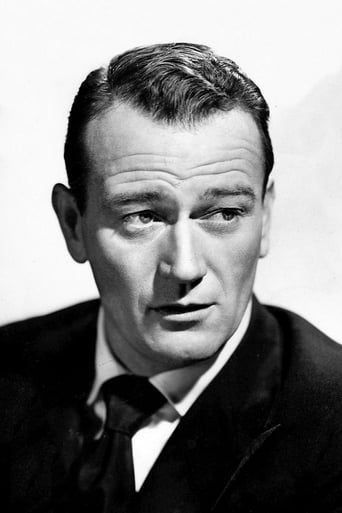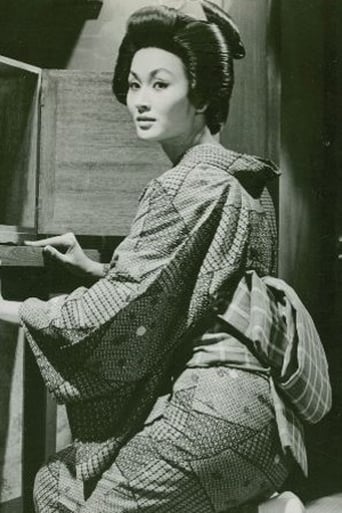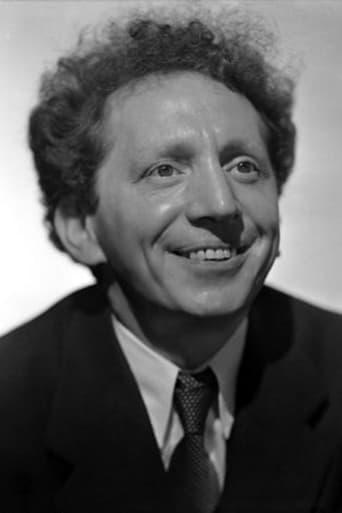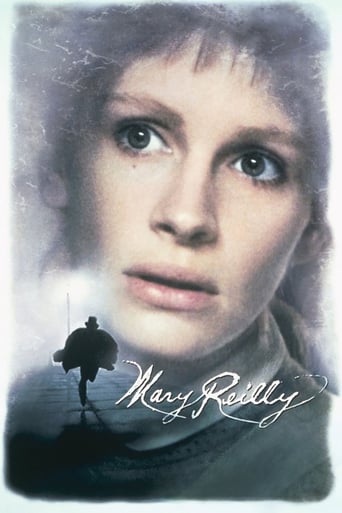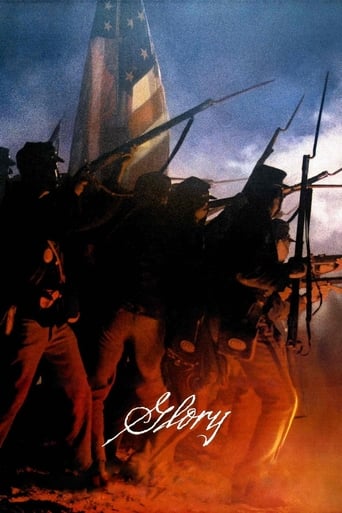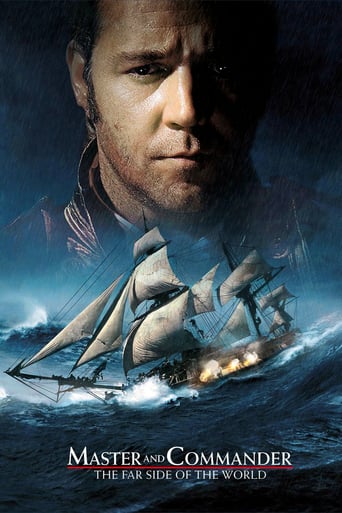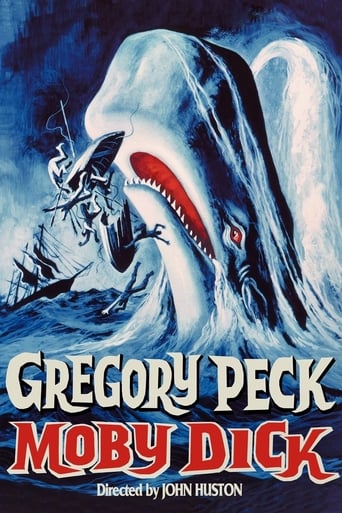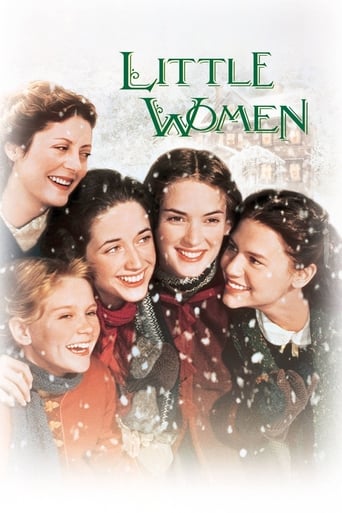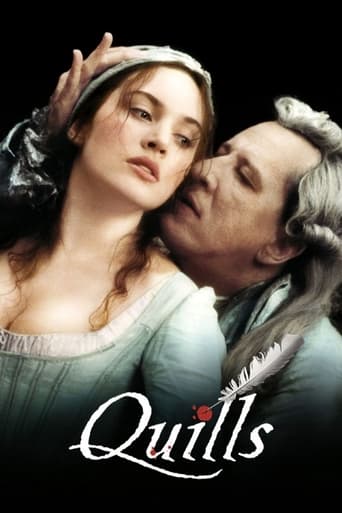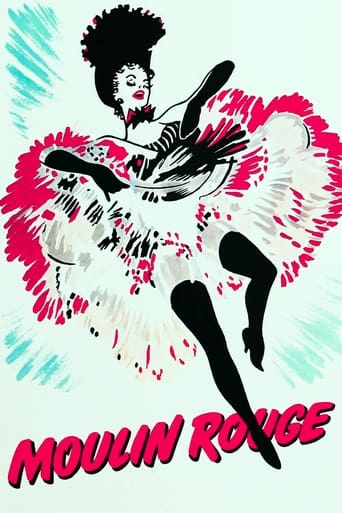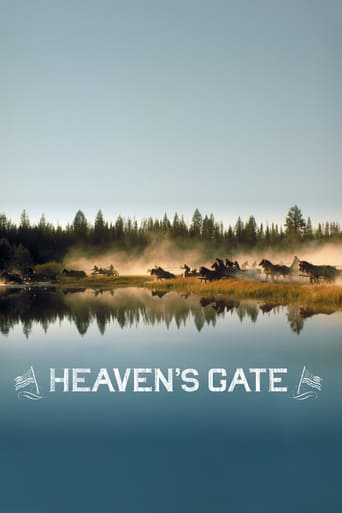The Barbarian and the Geisha (1958)
Townsend Harris is sent by President Pierce to Japan to serve as the first U.S. Consul-General to that country. Harris discovers enormous hostility to foreigners, as well as the love of a young geisha.
Watch Trailer
Free Trial Channels
Cast


Similar titles
Reviews
Good concept, poorly executed.
Absolutely brilliant
It's the kind of movie you'll want to see a second time with someone who hasn't seen it yet, to remember what it was like to watch it for the first time.
There's a more than satisfactory amount of boom-boom in the movie's trim running time.
SYNOPSIS: For 200 years, Japan had been "the forbidden empire," turning away all foreigners, and abusing (and even killing) shipwrecked mariners. But in August, 1856, an American Navy frigate put into the tiny seaport of Shimoda. A longboat slowly made its way towards shore, carrying Townsend Harris (the first U.S. ambassador to Japan), his interpreter, Henry Heusken, and three Chinese servants. The city officials order Harris off, but he ignores the order and takes up residence in a ruined temple. The Japanese refuse to sell him food and keep his party under constant observation.NOTES: Fox's 114th CinemaScope movie, and the first American film to be photographed in its entirety (both indoors and outdoors) in Japan Only film appearance of Eiki Ando Although Fox reported a loss of only $2 million on a negative cost of $3.5 million, it's hard to believe that worldwide rentals returned as much as $2.5 million (allowing an extra million to cover print, advertising and distribution expenses). No doubt John Wayne's solid allure at the domestic box-office helped no end.COMMENT: Understandably, "The Barbarian and the Geisha" was one of the least popular of the big-budget CinemaScope movies. A preachy, reach-me-down tone is set right from the beginning, where a patronizing, off-camera commentary explains both the action and Japanese dialogue for us. At least we are spared the verbal assault of Japanese peasants speaking pidgin English, but why are there no sub-titles?As for Big John himself, he is not so much miscast as unbelievable. I feel he could have made a reasonably good fist of the role, despite the handicap of stilted and ridiculous dialogue, but he doesn't even try. What's worse, his fans are going to be mighty disappointed to find there's so little action in the picture. True, the script does occasionally ring in a bit of humor, but humor without action for the true Wayne devotee is like mustard without meat.Although often visually attractive, "The Barbarian and the Geisha" misses the pictorial richness of contemporary Japanese period films like "Gate of Hell". In fact, by Huston's high standards, the direction and camera-work could be described as comparatively unimaginative, even stodgy. You can see that a lot of money was spent. It's right up there on the screen. But the result— ponderous, slow-moving, heavy-handed, patronizingly juvenile movie will please neither Wayne's fervent admirers nor the general, entertainment-seeking picturegoer.
In THE BARBARIAN AND THE GEISHA, John Wayne plays Townsend Harris, a real envoy from the United States who was responsible for truly opening up Japan to International relations in the late 1850s. Before him, Commodore Perry basically pushed into Japan with gunboats and forced a treaty upon the Japanese in 1853. Harris, who arrived just a bit later, worked through the details and helped ensure compliance--as many of the Japanese felt no particular inclination to honor the first treaty. All this is true and shown in the film. According to some other sources I found, the romance between Harris and a Japanese Geisha is mostly fiction and this romance is much of the focus of this film (hence, the title).My first reaction the first time I saw this movie was one of surprise. John Wayne as a diplomat?! When he's being diplomatic in most films, he says please and thank you as he pummels people!!!! So seeing him playing a man who is NOT a man of action and is able to play the diplomatic game seemed very odd indeed. In fact, I can't think of too many actors in 1958 who would have been more unusual for this role. By the way, I've seen photos of Harris and Wayne has practically no resemblance to him at all.However, despite the story taking a lot of liberties with the truth and the strange casting, the film is still very watchable. The color cinematography is nice, the film shows some nice insights into Japanese customs and culture and the acting isn't bad. All in all, a likable and watchable film despite it's odd casting.PS--Read through the trivia for this film. You find out a bit more about the real life characters as well as a supposed fight between Wayne and the director (John Huston) where Wayne apparently knocked him out!! Based on what I've read about Huston and the way he got along with actors, this is an incident I tend to believe. And, it's also a nice example of John Wayne "diplomacy".
This film was doomed from the start,Wayne was reluctant to make it;then to make matters worse he fell out with Houston who was directing. After filming had been completed,Houston moved on to other projects,Wayne however was not satisfied and had whole scenes reshot and re edited,the finished product was a mish mash of styles with the Duke trying to play a Cowboy in Japan.
When you consider that this movie was made only 13 years after the end of the war in the Pacific, with its brutality and carnage, it is quite surprising to see that the "The Barbarian and the Geisha" tries to to present the clash of cultures, 100 years earlier, with such apparent equity and fairness.While some may see John Wayne as the archetypical posterboy for American jingoism, in fact his character clearly tries to understand the country in which he is trying to establish the consulate, and shows genuine remorse, not arrogance, in noting that in early part of his assignment, all that the Americans had established was a cholera epidemic and the torching of the city to quell it.While the interracial love story behind the title was somewhat superficial, I thought that the more important aspects of colliding cultures and political shadowboxing was quite interesting and well presented.

